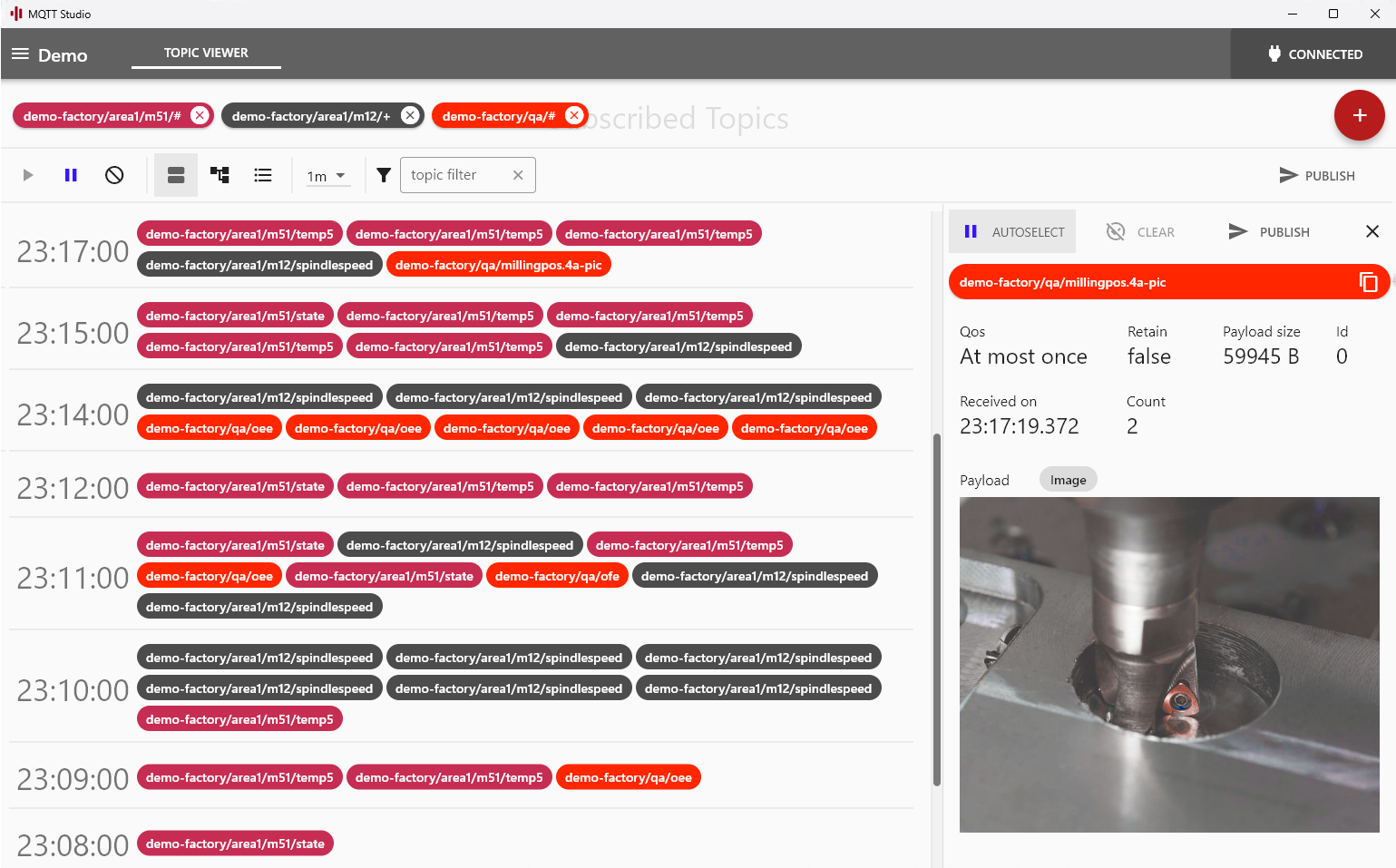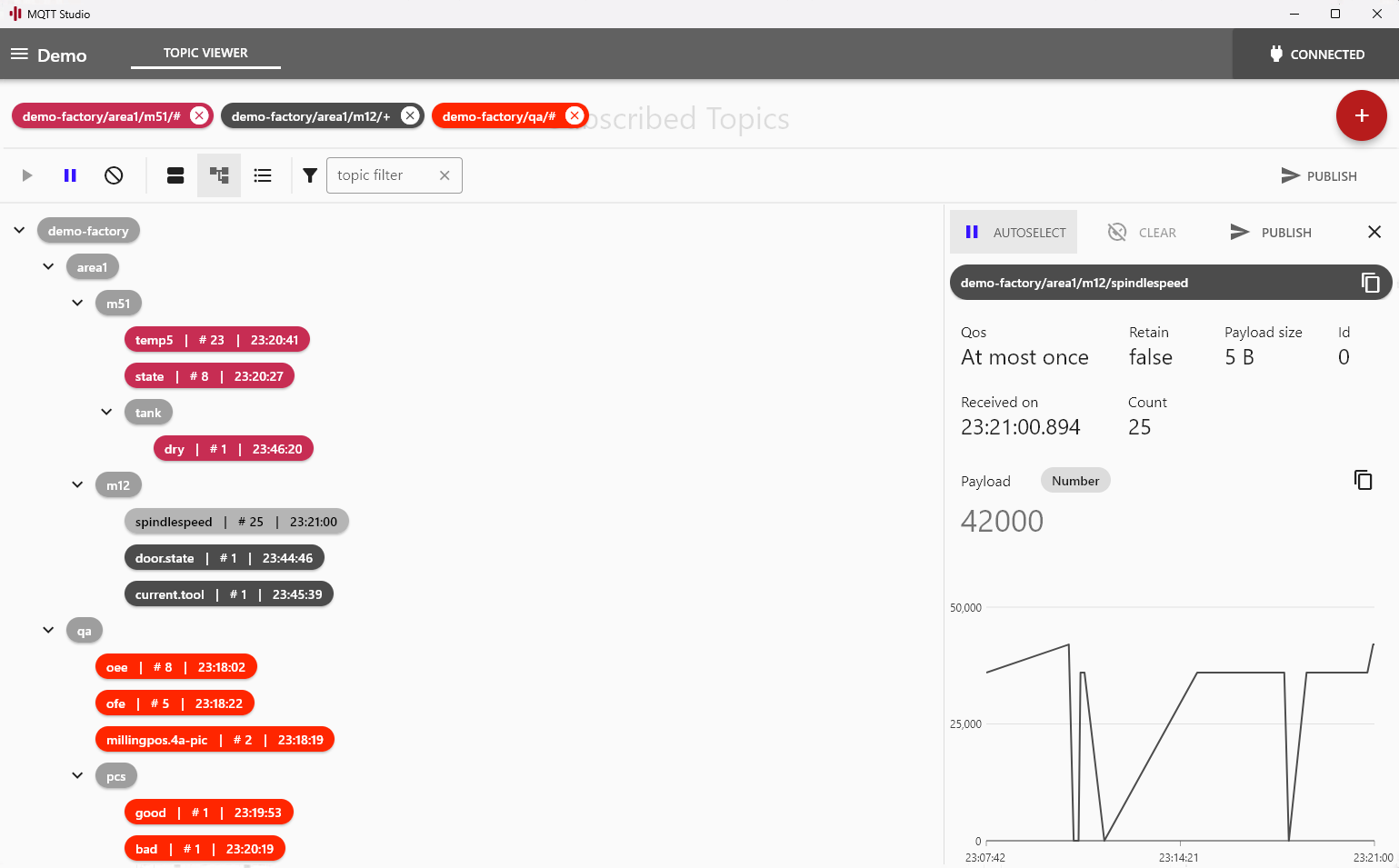
The Grouped Messages View simplifies message analysis by organizing them based on time periods, enabling developers to effortlessly discern message sequences and patterns, enhancing their understanding of MQTT-based data flow.

MQTT Studio's Hierarchical Messages View provides a comprehensive overview of message flow into a system, offering insights into message types and quantities. This feature simplifies system monitoring by presenting a structured hierarchy of messages.
Projects consolidate MQTT settings and topic subscriptions into one accessible location. They enable developers to seamlessly switch between different scenarios, streamlining their workflow and enhancing efficiency when working with different MQTT configurations.
The Topic Subscriptions Panel offers a dynamic interface for managing MQTT topic subscriptions. It displays all active subscriptions, enabling users to easily subscribe to or unsubscribe from topics, and even pause single topics temporarily to stop message reception when required.
The Messages Viewer offers three distinct view modes: Grouped, Hierarchical, and Sequential. Users can easily switch between these modes to analyze received messages according to their specific needs.
Assign unique colors to individual topics, resulting in all related messages being displayed in the same designated color. This intuitive visual distinction greatly aids in effortlessly differentiating between messages, streamlining message analysis and enhancing user understanding.
Provides comprehensive access to message data. It displays all metadata associated with a message, including its payload. Additionally, users can conveniently republish the message from this view.
Offers intelligent content display, automatically rendering payloads based on their content type. Whether it's text, numbers, dates, images (JPG, PNG), or JSON data, this feature ensures effortless visualization, allowing users to interpret message content at a glance.
The Topic Filter feature enables users to swiftly refine message displays by topic names.
Offers a visual representation of messages with numeric payloads, transforming data into charts. Users can easily interpret numerical values from MQTT topics, allowing for quick analysis and pattern recognition.
MQTT-Studio provides developers with a superior tool for managing MQTT-based applications. It offers a user-friendly interface and advanced message analysis capabilities.
MQTT-Studio operates on a licensing model that allows both personal and commercial usage, making it accessible for various purposes. For specific details regarding the licensing terms, users are encouraged to refer to the End User License Agreement (EULA) for comprehensive information.
MQTT-Studio is developed by a dedicated team of developers who invest their spare time in building tools that enhance developers' productivity. Driven by passion, we work collaboratively to create innovative solutions, including MQTT-Studio and the localization tool Babylon, to streamline the development process and support the developer community.
We encourage you to actively contribute to MQTT-Studio's improvement by submitting bug reports, feature requests, and suggestions. Your input is invaluable in shaping the future of MQTT-Studio. Please don't hesitate to reach out via email with your ideas and feedback. Thank you for your collaboration!
As of now, MQTT-Studio does not generate revenue, and the free version will always remain free without any plans for sale or the inclusion of advertisements. However, we have plans to develop additional commercial features specifically designed to assist developers, ensuring ongoing support and innovation for MQTT-Studio.
MQTT-Studio is developed using Flutter, a popular open-source UI software development toolkit created by Google. Flutter allows for the development of cross-platform applications with a single codebase.